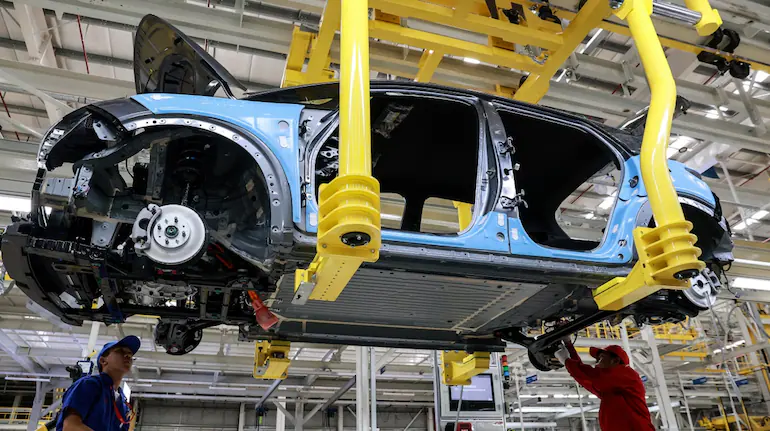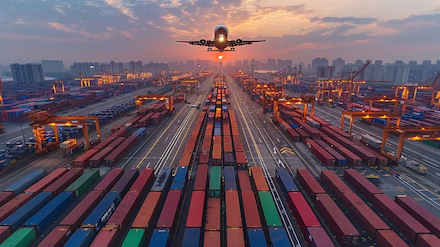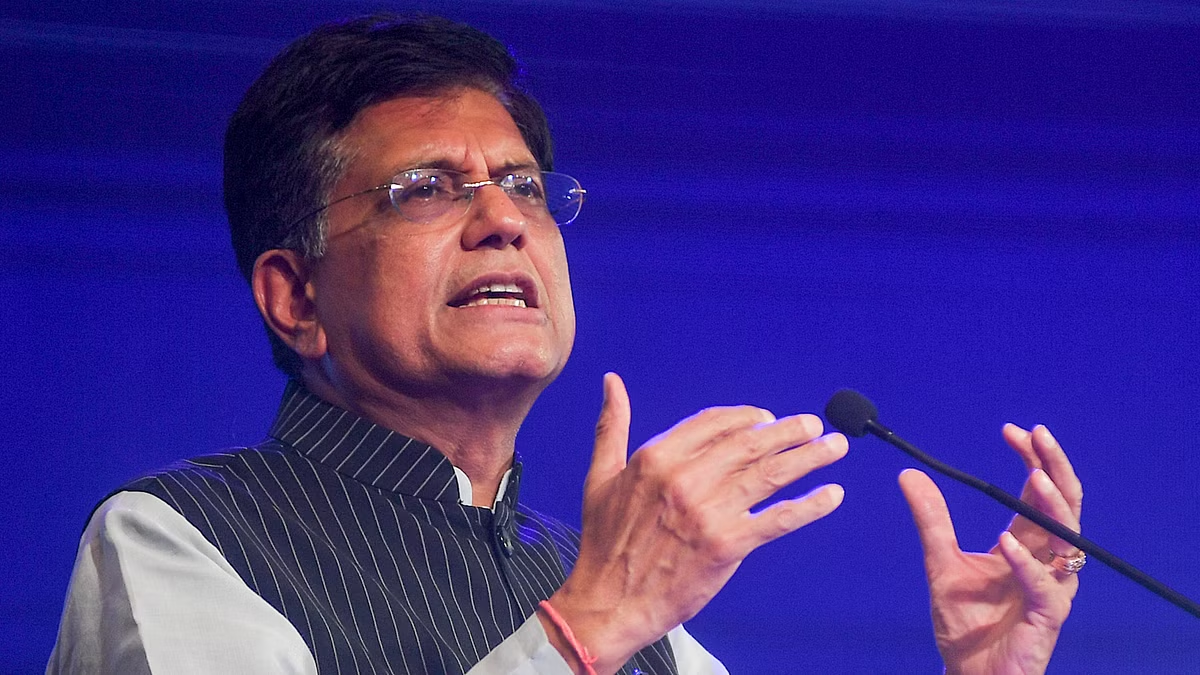Share

Workers assemble a BYD Dolphin compact hatchback electric vehicle inside the company’s new plant in Nikhom Phatthana, Thailand, in July. Bloomberg China has strongly advised its carmakers to make sure advanced electric vehicle technology stays in the country, even as they build factories around the world to escape punitive tariffs on Chinese exports. Beijing is encouraging Chinese automakers to export so-called knock-down kits to their foreign plants, meaning key parts of a vehicle would be produced domestically and then sent for final assembly in their destination market. China’s Ministry of Commerce held a meeting in July with more than a dozen automakers, who were also told they shouldn’t make any auto-related investments in India, asking not to be identified discussing matters that are private, in another attempt to safeguard the know-how of China’s EV industry and mitigate regulatory risks. In addition, carmakers wanting to invest in Turkey should first notify the Ministry of Industry and Information Technology, which oversees China’s EV industry, and the local Chinese embassy in Turkey.The instructions come as companies from BYD Co. to Chery Automobile Co. firm up plans to build factories in Spain to Thailand and Hungary as their innovative and affordable EVs make inroads in foreign markets. Representatives from the Ministry of Commerce, or MOFCOM, didn’t respond to a request for comment. China’s directive comes at a time most major Chinese carmakers are looking to localize manufacturing, so as to avoid tariffs on Chinese-made EVs. MOFCOM guidelines that demand key production should remain within China could hurt automakers’ efforts to globalize as they search for new customers to offset fierce competition and sluggish sales at home that are cutting into their bottom lines. It could also come as a blow to those European nations wooing Chinese carmakers in the hopes their presence will bring jobs and a local economic boost. BYD is planning on building a factory in Turkey, that’s expected to have an annual capacity of 150,000 cars and employ up to 5,000 people. During the meeting, MOFCOM noted that the countries inviting Chinese automakers to build factories are usually those enacting or considering trade barriers against Chinese vehicles. Officials told attendees that manufacturers shouldn’t blindly follow trends or believe such calls for investment from foreign Governments.
Several Chinese companies have already begun opening plants in the European Union to avoid duties. But Valdis Dombrovskis, an executive vice president of the European Commission, warned recently that such moves would only work if the firms meet rules-of-origin requirements that dictate a minimum level of value must be created in the EU. “How much of the value added is going to be created in the EU, how much of the know-how is going to be in the EU? Is it just an assembly plant or a car manufacturing plant? It’s quite a substantial difference,” Dombrovskis told the Financial Times last month. In Brazil, BYD and Great Wall Motor Co. have said explicitly that they aim to increase the share of locally produced and locally sourced components in coming years. That’s aimed at meeting local component requirements of roughly 50% of a product in order to export to other Latin American countries without tariffs, based on Brazil’s trade agreements with them. Turkish politicians said in July that BYD has agreed to construct a $1 billion plant in the west of the country. Any new factory is expected to improve BYD’s access to the European Union, because Turkey has a customs-union agreement with the bloc. Turkey in June introduced a 40% tariff on vehicle imports from China. BYD declined to comment. In Spain, Chery Automobile has a partnership with a local firm to reopen a former Nissan Motor Co. plant in Barcelona. The Spanish plant will assemble cars from kits that have been partially “knocked down,” according to Chery. Tensions between China and India, meanwhile have remained elevated since a deadly clash broke out over a stretch of border in the Himalayas between the two nuclear-armed neighbors in 2020. Chinese state-owned manufacturer SAIC Motor Corp., which controlled MG Motor India, was investigated over financial irregularities in 2022, Bloomberg reported. Last year, SAIC diluted its stake in the Indian MG operation, with its ownership forecast to be trimmed to 38-40% over time, according to one local media report. Chinese EV stocks pared early gains on Thursday with SAIC Motor falling more than 1% in Shanghai and Geely Automobile Holdings Ltd. and BYD slightly down in Hong Kong.







